- Home
- Johnny D. Boggs
The Cane Creek Regulators Page 3
The Cane Creek Regulators Read online
Page 3
“You have become such a cynic.”
“Aye. That I am. Do you wish to journey on to Mister Gouedy’s trading post?”
Emily shook her head. “That I have seen. I …” Emily froze. When she looked down the road toward Gouedy’s post, she saw two men in buckskins walking toward them. She blinked, and caught her breath. She was certain it was the Cherokee and Blubber Cheeks, even though she knew it couldn’t be. She stepped back, tripping over Donnan’s foot, falling to the ground.
Donnan was at her side instantly, pulling a Queen Anne flintlock from his belt that she hadn’t even noticed. He thumbed back the hammer, aiming at the approaching men, while Emily tried to climb to her feet, to run.
“’Tis all right, Emily,” Donnan assured her softly once he could clearly see the faces of the two men. He lowered the hammer of the pistol.
Heart pounding, Emily rolled over, still unable to stand, thinking she might wet herself. She closed her eyes tightly, shook her head as she heard Donnan call out, “Hello, you two old Huguenots!”
“Bonjour, mon ami.”
When Emily heard the greeting, she opened her eyes as she reprimanded herself: Idiot. She cursed herself, pushed up off the ground, brushing off the pine needles and dead leaves from her dress. She no longer imagined seeing the Cherokee or Blubber Cheeks—or their ghosts. In front of her stood Dr. François Bayard and his friend, the farmer Pierre Maupin, both of whom lived on Cane Creek about six miles from Ninety Six. She blushed from embarrassment, but the two Huguenots were unaware of her blunder, or her fear. They were embracing Donnan as she walked up the road, attempting a grin.
The doctor stepped forward, sweeping off his hat, bowing, speaking in rapid French that she couldn’t understand. Although she had known several Huguenots down in Georgetown, Emily knew little about them, except for what she had heard at the tavern. They were Protestants who had left France years earlier, and there were many living in the colonies, especially in South Carolina.
“We missed you at the meeting,” Donnan told Maupin, who cocked his head curiously, then looked in question at his companion.
Dr. François Bayard was older than the farmer by ten years or so, a heavyset man with an almost feminine face and penetrating blue eyes. He butted the long rifle he carried on the ground and asked, “What meeting?”
“Da sent word earlier this afternoon,” Donnan said.
“Not to me,” Dr. Bayard said.
“Nor I,” the farmer added. The buckskins worn by Pierre Maupin fit him a lot better than they did Dr. Bayard. Maupin was rail thin, bearded, with a furrowed brow, brooding brown eyes, and a long-stemmed pipe that Emily had never seen out of his mouth or hand. Nor was it ever lit.
“Was Joseph Robinson there?” Maupin asked.
Dr. Bayard was already shaking his head before Donnan replied in the affirmative.
“Merde,” Maupin said.
“Mind your manners,” the doctor said, lifting his rifle into the crook of his arm, indicating Emily with a nod of his head. “I am sure Mister Robinson merely forgot to tell us of the meeting. Just as last time.”
“The arrogant swine,” Maupin said. “I wish he would return to Virginia.”
“He cannot,” said Dr. Bayard. “I understand he left after some sort of scandal.”
“I apologize,” Donnan interrupted the two. “I shall tell Da the next time he sends word to Cane Creek that he should tell the courier to deliver the word personally to one or the other of you.”
“No apology is needed, my good man,” Dr. Bayard said. “What was this meeting about?”
Emily slipped beside her brother. “Just more of the same,” she said. “Talk about sending another group to petition the governor and Assembly for some help.”
They didn’t respond for several moments. Maybe Huguenots were like the gentry in Charlestown and Georgetown or any other settlement along the tidewater. They weren’t used to having women, or young girls still in their teens, interrupting a conversation among men.
“Has there been another incident involving some scélérat?” the doctor asked.
Donnan turned to his sister, then looked back at the two neighbors.
“Scoundrel,” Maupin translated.
Emily drew in a deep breath. “Three red scoundrels,” her brother answered. “Raising havoc on the Cherokee Path past Spring Branch.”
“Only one,” Emily said curtly, “was an Indian, Donnan. The other two were white.”
“Men of that ilk paid Pierre a visit yesterday,” the doctor said.
“Smashed my tomatoes and stole a bovine,” Maupin said glumly. “Did you catch and flog the prodigals?”
“Da and Mister Gouedy and the others might still be meeting at Da’s tavern,” Emily sang out. “If you want to report what happened to Mister Maupin …” She stopped herself from saying anything further, fearing she might break into tears.
“Aye,” Donnan said. “Let us walk back with you, if you are bound for Ninety Six.”
The doctor laughed. “We are not bound for Ninety Six, Donnan Stewart.”
Maupin cut in, “We are bound for Cormorant’s Rock!”
“For rum, the nectar of the gods!” sang out the Dr. Bayard.
“For kill-devil,” Donnan agreed, laughing. Emily smiled, relieved they were walking back to Ninety Six. On the way, the doctor told of the giant fish he had caught in Cane Creek the previous day.
* * * * *
The tavern had grown silent. It stood two stories high with a pitched roof of wooden shingles. It was not made of roughhewn logs like most of the homes in the region, but of squared cedar timbers, eighteen inches high and nine inches deep, dovetailed at the corners, and thoroughly chinked. At the tavern, Emily had heard many men say that Gouedy’s fort was a stockade but that Cormorant’s Rock was safe.
Inside, a giant fireplace dominated the north side; outside, a commodious covered porch stretched out along the east wall and was always crowded on warm summer evenings. A split-rail fence surrounded the property, which included an outdoor oven for baking bread, a smaller summer cook shack, the privies, and Machara Stewart’s garden. The bottom story was one giant room, where Breck Stewart served his liquor, and a smaller winter kitchen, where Machara cooked her stews, breads, and pies. The upper story held four rooms, one bedroom for the two Stewart adults, one for the four children, and two rooms for any guests who might need to spend the night.
That evening, the cabin smelled of bacon and rum. Donnan swept the floor in silence, while Emily’s mother washed the dishes out back with Emily’s younger sister Elizabeth, named after her grandmother in Georgetown, and her younger brother Alan.
Although most of the district had been here that afternoon, it was a quiet night. The Huguenots had been the last to leave, full of lamb stew, corn pone, and ale.
Emily sat at a table by an open window, a candle flickering from the breeze, making it hard for her to read her Bible. Not that she was trying too hard. Her mind kept going back to what had happened that morning. She kept seeing Blubber Cheeks, kept telling herself that she had actually killed a man.
“So … Emily.”
She almost leaped out of the chair before realizing it was her father standing next to her.
“Easy, child,” Breck Stewart said. “I did not mean to give you a fright.”
“I am sorry, Da.” Her heart was pounding. She settled back into the chair, and looked past her father. Donnan, it seemed, had swept dirt, trash, and himself right out of the tavern.
Breck Stewart pulled out a chair across from Emily and slid into it. “Are you all right, Daughter?”
She nodded. Then added honestly, “As well as could be expected.”
“A bad morning.”
“It could have been worse.”
Breck Stewart’s head bobbed. He brought his massive hands onto the table,
and seemed to stare at his fingers as he flexed them. That went on for a full minute. Emily closed the Bible and waited.
“We have a petition to deliver to the Assembly,” Breck said at last. “A good one, I think.”
Another long silence.
“Gouedy, myself, and two others will depart on the morrow for Charlestown.”
“We shall miss you, Da.”
“Six days there,” her father said. “Six back. Probably four days in Charlestown.”
“Sixteen days.” She wanted to fill the silence, but she doubted if her father had heard.
The last time Breck Stewart had left for Charlestown, he had asked Emily if she wanted him to bring her back a gift “from civilization.” She waited for him to ask the question again, and when he did not, she knew what was coming, and dread knotted her stomach. She drew in a deep breath, held it briefly, and silently exhaled while her father stared at his fingernails.
After another intolerable silence, Breck Stewart looked across the table at Emily. “You shall come with us, Daughter.”
Her heart sank, for she knew what he father would say next.
“We will go to Georgetown. You will spend at least the summer and fall visiting with your grandparents.”
What had happened today must have scared him something fierce. Summer was the sick time along the Carolina coast. Many people fled Charlestown, Georgetown, and other settlements for fear of those deadly summer diseases—malaria, yellow fever.
“Da,” she said softly, “Ninety Six, Cormorant’s Rock … this is my home. Cane Creek. The Saluda. The Broad. Long Cane Creek. This is …”
“No place for a girl,” her father finished the sentence for her.
“Is Rachel Rowe going? Or Mister Gouedy’s daughters? Or Jemima Cochrane? They …” She stopped, knowing that while she might be sixteen years old, her father could still send her to the woods to fetch a switch and then hide her for impudence and disrespect. She wasn’t so old she could not remember her last whipping. Hell, she seemed to get them more than Elizabeth or Alan.
“They are not my daughters. You will go.”
“What about Elizabeth?” Emily asked.
“She is too young.”
Feeling that anger rising again, Emily almost said something she knew she would have regretted. She had to bite her lip as Breck Stewart spoke to her about the harshness of the frontier and that he was beginning to regret ever bringing her to Ninety Six.
“You should be a lady. You deserve pretty things. You should meet a fine gentleman in Charlestown. Or Georgetown. ’Tis where your mum met me.”
“You forget, Da,” she said, “who I am.”
He cocked his head. “And just who are you?”
“A Stewart of Appin.”
He leaned back, grinning widely, shaking his head. “Aye, that you are, Daughter, that you are. But the Atlantic Ocean will do you a world of good. There are days that I miss the salt on the breeze, hearing the waves crash, seeing the sails in the harbor. I should have left you with my mum and da during the last bit of unpleasantness.”
She had one last argument, and fired it. “Da, I think that this morning I proved that I know what it takes to live in the backcountry, what it takes to survive here. With all due respect, Da, I am not your mother. I am …” she grinned, hoping to win him over, “your daughter. A Stewart of Appin.”
Breck Stewart’s face remained granite. “I know you are, Daughter. I know what you have said is the truth. You are a Stewart, and you know how to handle yourself in this lawless country … which is exactly why I must send you to the coast, to civilization.”
Chapter Four
The man at the market swept off his hat, bowing at Emily, and saying, “Welcome to the prettiest flower and the most flourishing city of all His Majesty’s colonies.”
Emily didn’t see it that way. She hated Charlestown.
It dwarfed the coastal town she had known, and she found little here to remind her of Georgetown, where her grandparents operated an indigo plantation.
In Georgetown, an island sheltered them from the harsh Atlantic, and the Sampit, Waccamaw, and Black Rivers flowed gently toward the ocean. In Georgetown, all she had to worry about were alligators, snakes, and mosquitoes. In Charlestown, everything frightened her.
Her father had told her that only Philadelphia, New York, and Boston had a larger population in the colonies than Charlestown. Walking along the streets, she found it hard to believe that any place had more people than this overwhelming city.
They passed churches and market places, theaters and coffee houses, and taverns—Dillon’s and the City Tavern on Broad Street, Sign of the Bacchus, Henry Gignilliant’s—so many that she could not count. Men wore white wigs, and fine coats, and spoke the King’s English, not the coarse backcountry talk of Ninety Six. Women wore embroidered dresses of the finest silk, and carried fans. Emily had even spotted a couple of women showing off their beaded satin shoes.
Merchants and planters. Soldiers and sailors, the latter speaking myriad languages that Emily could not make sense of. His Majesty’s officials, indentured servants, and another class of people Emily had never seen. Beggars in filthy clothes, on their knees, pleading for a shilling. Her father and Robert Gouedy walked on without glancing at the poor creatures, and Emily, head down, hurried past.
She also saw slaves—men, women, children. These she had seen many times on the Stewart plantation in Georgetown, at the Gouedy place, and other farms around Ninety Six. Yet she didn’t think she had ever seen this many slaves. They seemed to make up half the city.
They even passed whipping posts and stocks. The posts were empty, but some of the stocks held men—two actually held women—looking pathetic, helpless with their hands and heads sticking out from the heavy wooden yokes. A young Negro, merely a boy, had to stand on his tiptoes to keep from choking to death. Gouedy and Stewart merely walked past them, as did everyone else in Charlestown, scarcely even noticing the poor men and women. Everyone but Emily. She would never forget the images of these poor people.
Earlier that day, with the bells at St. Michael’s tolling ten times, they had arrived in Charlestown and parked the wagons in the lot. A merchant, a man with a French accent and wooden leg, inspected the deerskins, flour, and hemp they had transported from Ninety Six.
“Fix us a glorious price, Henri,” her father had told the Frenchman, “the best you can offer. And do not insult me or you shall rue this morning. We shall return tomorrow.”
“He means what he says, monsieur,” Gouedy had said, to which the trader had grinned and nodded, muttering something in French that caused Gouedy to laugh heartily.
All around her, Emily saw hogsheads, tierces, and barrels of rum, gin, ale, wine, and what must have been thousands of empty bottles waiting to be filled. Flour, hemp, cured brown tobacco wrapped in giant sheets of canvas, hogsheads of indigo, barrels of rice.
Yet it was not just a massive city of strange people and products, of shouts, of the smells of saltwater and the warm breeze from the ocean. Cows and horses grazed on the grass that clawed its way up from underneath the cobblestone streets. Emily had to step over dead rats, and she encountered packs of mangy dogs, and groups of fat cats huddling in the alleys.
They registered at an inn along the Cooper River, depositing their grips in their rooms, and then headed toward Broad Street. Emily stopped frequently to gape at the fortified wall built decades earlier to protect the city from the Spaniards, the pirates, the French.
Her father pointed at a two-story building on the battery. “The ground floor,” he said over the shouts of men and women and the snorts of horses and mules, “used to be the guard house. The top floor was the council chamber, which is where the Assembly and governor met!” He winked. “Ask me, and the Assembly and governor should have been confined to the bottom floor.”
Shaking his he
ad, Gouedy laughed, but his grin faded quickly and he shook his head. “’Tis one of the problems we face trying to get the Assembly’s attention. Charlestown’s jails cannot hold the city’s criminals, let alone those to be found in our district.”
Breck pointed to a clear path. They hurried before the people filled it in.
At the corner of Meeting and Broad Streets, they stopped, and Emily stared at the new structure. “I shall arrange an appointment in the state house,” Gouedy said, “but it might be a good idea if you were to pay a friendly visit to William Bull.”
“Indeed,” Breck said, and, turning, he said to Emily, “Follow me, Daughter.” Which she did, not daring to let her father get more than two steps ahead of her.
At the corner of Meeting and Ladson Streets, Breck Stewart knocked on the fine door of a stuccoed brick building that, to Emily, resembled a castle. She thought her grandparents were wealthy, but they certainly did not call a place like this home. It was three and a half stories, with windows on each side of the door, three windows on the second and third floors, all with shutters closed.
An immaculately dressed Negro opened the door, and Stewart whispered something to him, then turned and motioned for Emily to follow. She climbed the steps, and stepped inside paradise, albeit a dark paradise.
They waited inside the parlor, Emily afraid to sit down on the furniture, as dirty as she felt, as filthy as she surely must have become on the long trip from Ninety Six. She could not understand why Robert Gouedy and her father had insisted on visiting the colony’s lieutenant governor now. They should have freshened up at the inn, rested, then paid a visit in the morning, when it might be a tad cooler.

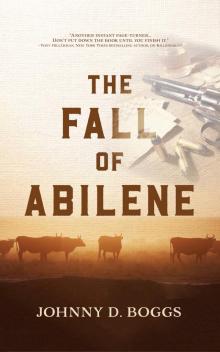 The Fall of Abilene
The Fall of Abilene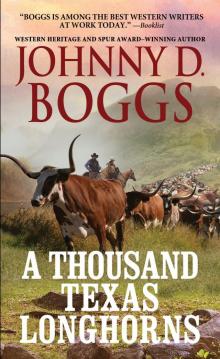 A Thousand Texas Longhorns
A Thousand Texas Longhorns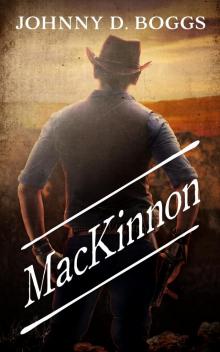 MacKinnon
MacKinnon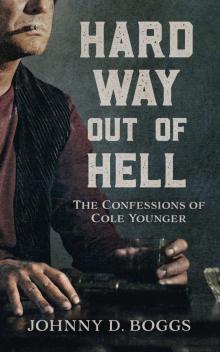 Hard Way Out of Hell
Hard Way Out of Hell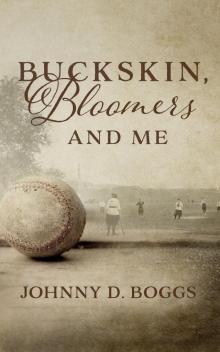 Buckskin, Bloomers, and Me
Buckskin, Bloomers, and Me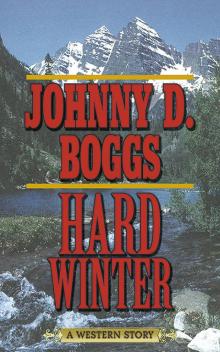 Hard Winter
Hard Winter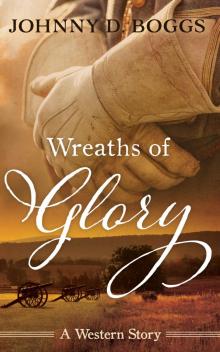 Wreaths of Glory
Wreaths of Glory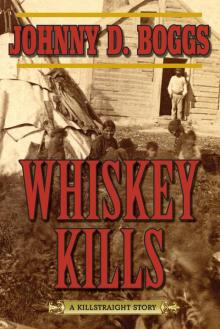 Whiskey Kills
Whiskey Kills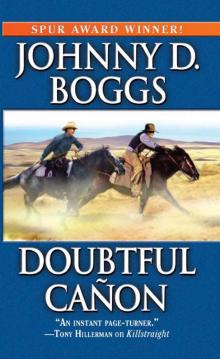 Doubtful Canon
Doubtful Canon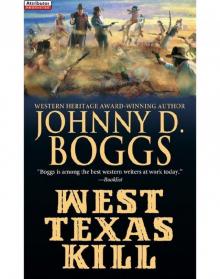 West Texas Kill
West Texas Kill The Killing Shot
The Killing Shot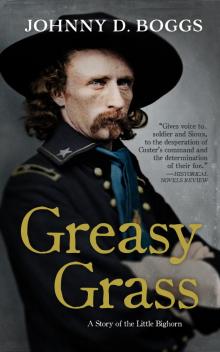 Greasy Grass
Greasy Grass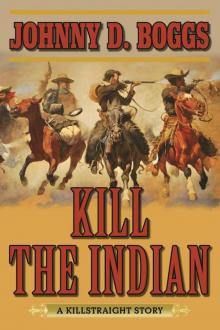 Kill the Indian
Kill the Indian Return to Red River
Return to Red River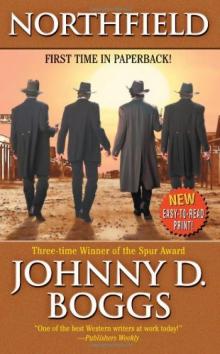 Northfield
Northfield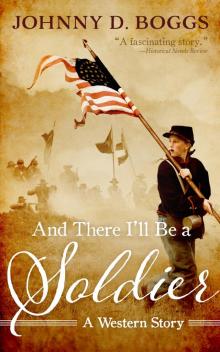 And There I’ll Be a Soldier
And There I’ll Be a Soldier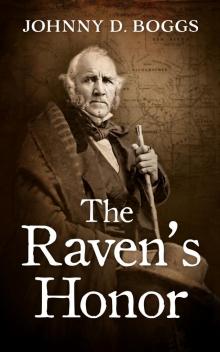 The Raven's Honor
The Raven's Honor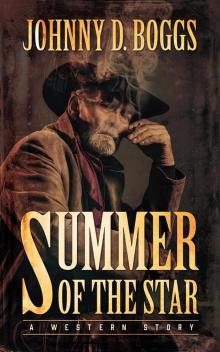 Summer of the Star
Summer of the Star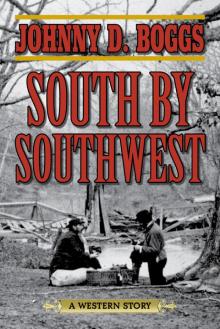 South by Southwest
South by Southwest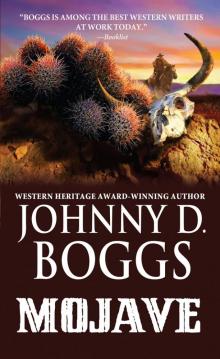 Mojave
Mojave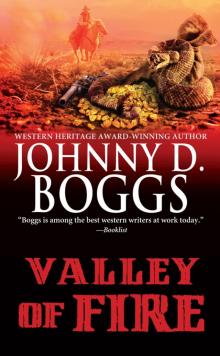 Valley of Fire
Valley of Fire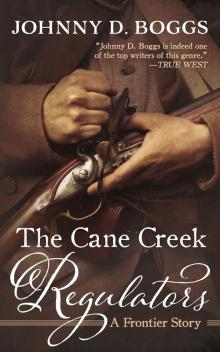 The Cane Creek Regulators
The Cane Creek Regulators